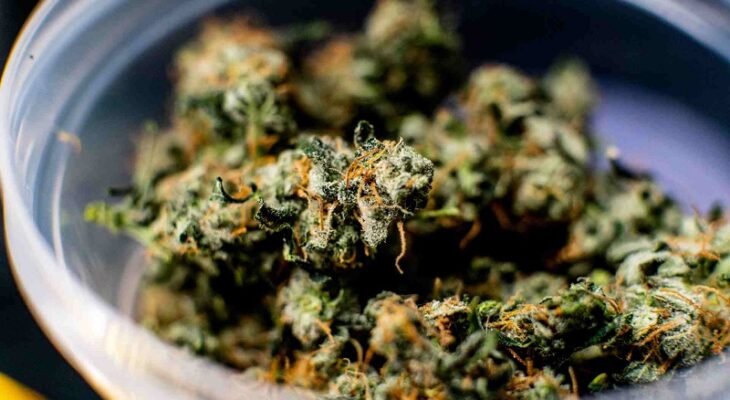
Cannabis Unveiled Debunking Myths and Embracing Facts
They carefully trim the plants, removing excess leaves and stems, and then dry them slowly in a controlled environment. This process allows the buds to develop their unique aromas and flavors while maintaining their potency. The final result of cannabis craftsmanship is a product that stands out in terms of quality, potency, and flavor. Craft cannabis is often considered superior to mass-produced marijuana, as it is carefully cultivated and handcrafted with love and expertise. It offers a more personalized and unique experience for consumers who appreciate the artistry and dedication that goes into its production. In , cannabis craftsmanship is an emerging concept in the cannabis industry, where cultivators strive to master the art of cultivation. It involves a deep understanding of the plant’s genetics, cultivation techniques, and a passion for producing the finest cannabis. Through careful selection, cultivation, and harvesting, cannabis craftsmen create products that stand out in terms of quality, potency, and flavor. As the demand for high-quality cannabis continues to grow, the importance of cannabis craftsmanship cannot be overstated. In recent years, there has been a growing interest in the potential benefits of cannabis for mental wellbeing.
With the legalization of cannabis in many parts of the world, researchers and individuals alike are exploring its potential as a treatment for various mental health conditions. However, it is important to look beyond the buzz and understand the complexities surrounding cannabis and mental wellbeing. Cannabis contains compounds called cannabinoids, the most well-known being tetrahydrocannabinol (THC) and cannabidiol (CBD). THC is responsible for the psychoactive effects of cannabis, while CBD is believed to have therapeutic properties. Both compounds interact with the endocannabinoid system in the body, which plays a role in regulating mood, stress, and other mental processes. One of the most commonly discussed mental health conditions in relation to cannabis is anxiety. While some individuals report that cannabis helps alleviate their anxiety symptoms, others may experience increased anxiety or paranoia. The effects of cannabis on anxiety can vary depending on the strain, dosage, and individual factors. It is crucial to consult with a healthcare professional before using cannabis as a treatment for anxiety. Another mental health condition that has gained attention is depression. Some studies suggest that CBD may have antidepressant effects by interacting with serotonin receptors in the brain. However, more research is needed to fully understand the potential benefits and risks of cannabis for depression.
It is important to note that cannabis should not be seen as a substitute for evidence-based treatments for depression, such as therapy or medication. Post-traumatic stress disorder (PTSD) is another area where cannabis is being explored as a potential treatment. Some individuals with PTSD report that cannabis helps reduce symptoms such as nightmares and flashbacks. However, the evidence is limited, and more research is needed to determine the effectiveness and safety of cannabis for PTSD. It is also important to consider the potential risks associated with cannabis use. Heavy and long-term cannabis use has been linked to an increased risk of developing psychosis, marijuana dispensary especially in individuals with a predisposition to mental health conditions. Additionally, cannabis use can impair cognitive function, memory, and attention, which can negatively impact mental wellbeing. Furthermore, the quality and safety of cannabis products vary greatly. The lack of regulation in the cannabis industry means that consumers may be exposed to contaminants or inaccurate labeling. It is crucial to obtain cannabis products from reputable sources and to be aware of the potential risks associated with their use. In , while there is growing interest in the potential benefits of cannabis for mental wellbeing, it is important to approach the topic with caution and skepticism.
Cannabis may have therapeutic potential for certain mental health conditions, but more research is needed to fully understand its effects and risks. It is crucial to consult with healthcare professionals and to consider evidence-based treatments before considering cannabis as a treatment option. Additionally, the potential risks associated with cannabis use should not be overlooked. As the field of cannabis research continues to evolve, it is important to stay informed and make informed decisions regarding its use for mental wellbeing. Cannabis, once a taboo subject, is now gaining widespread acceptance and recognition for its potential health benefits and economic opportunities. As more countries and states legalize its use, the cannabis industry is experiencing a surge in innovation and trends that are shaping its future. From new consumption methods to advanced cultivation techniques, here are some of the key trends and innovations that are likely to shape the future of cannabis. One of the most significant trends in the cannabis industry is the rise of alternative consumption methods. While smoking remains popular, many consumers are turning to other options such as edibles, tinctures, and topicals. Edibles, in particular, have gained popularity due to their discreet nature and precise dosing.
Companies are now investing in research and development to create innovative edible products that cater to different tastes and dietary preferences. Another trend that is likely to shape the future of cannabis is the increasing focus on personalized medicine. As more research is conducted on the various compounds found in cannabis, such as THC and CBD, scientists are discovering their potential therapeutic benefits for a wide range of conditions. This has led to the development of strains and products that are specifically tailored to address specific ailments. In the future, we can expect to see more personalized cannabis products that cater to individual needs and preferences. Innovations in cultivation techniques are also revolutionizing the cannabis industry. Traditional methods of growing cannabis often require large amounts of water, energy, and space. However, with the advancement of technology, companies are now developing more sustainable and efficient cultivation methods. Vertical farming, for example, allows for the cultivation of cannabis in stacked layers, maximizing space and reducing water and energy consumption. Additionally, advancements in LED lighting and automated systems are improving crop yields and quality. The future of cannabis also lies in the development of new and improved extraction methods.
















